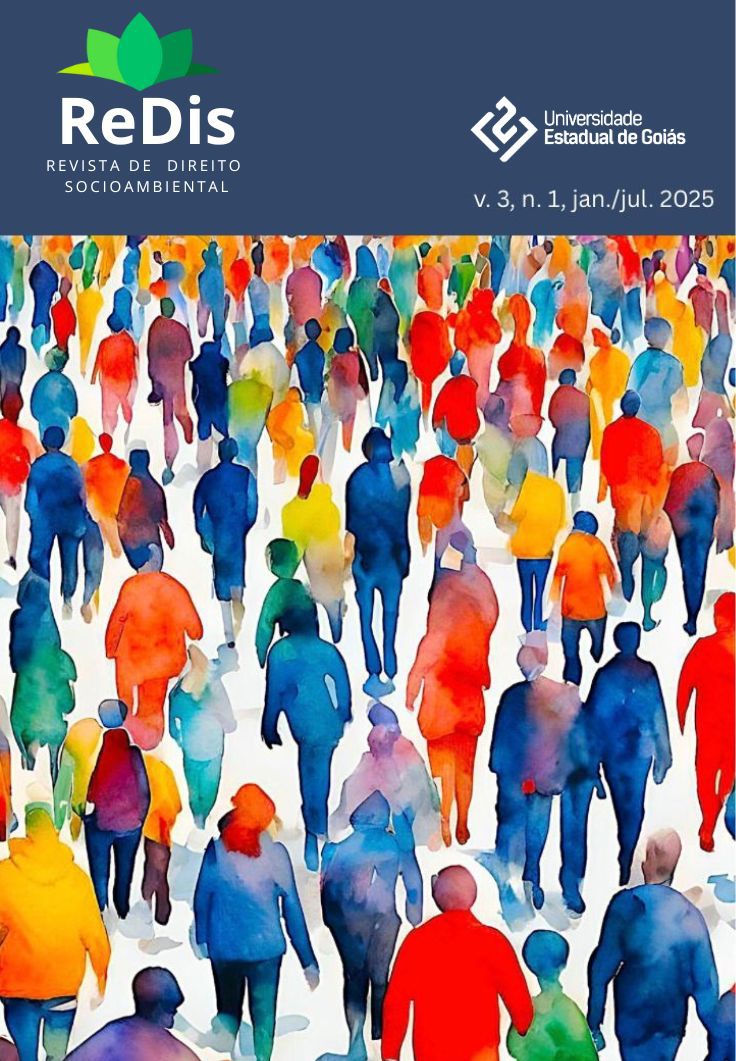
Sobre a Revista
A ReDiS - Revista de Direito Socioambiental (UEG), vinculada ao Curso de Direito da Universidade Estadual de Goiás, é uma publicação acadêmica semestral, em fluxo contínuo, de acesso livre, que permite a publicação de artigos científicos, resenhas e entrevistas vinculadas aos seguintes eixos: a) Teoria, hermenêutica e judicialização dos Direitos Fundamentais; b) Políticas Públicas e Movimentos Sociais voltados à promoção de Direitos Humanos; c) Pesquisas empíricas e críticas em Direito Socioambiental.
ISSN: 2965-3991
Edição Atual

Edição:
Dr. Thiago Henrique Costa Silva
Artigos
Sejam bem-vindos ao ambiente virtual da ReDiS.
A ReDiS - Revista de Direito Socioambiental (UEG) é uma publicação acadêmica iniciada no ano de 2022, vinculada ao Curso de Direito da Universidade Estadual de Goiás. A ideia de constituir o periódico surge da necessidade de fomentar o debate cientificamente qualificado no ambiente acadêmico jurídico e que alcance a sociedade, estimulando docentes e discentes a (re)pensar o papel de uma universidade pública.
A revista recebe artigos em fluxo contínuo, tendo publicações semestrais, privilegiando a rápida divulgação das pesquisas.
Aceita-se artigos em português, espanhol inglês e francês.
Todxs estão convidados a contribuir.
At.te,
Editor: Dr. Thiago Henrique Costa Silva
Universidade Estadual de Goiás
Editora da UEG











